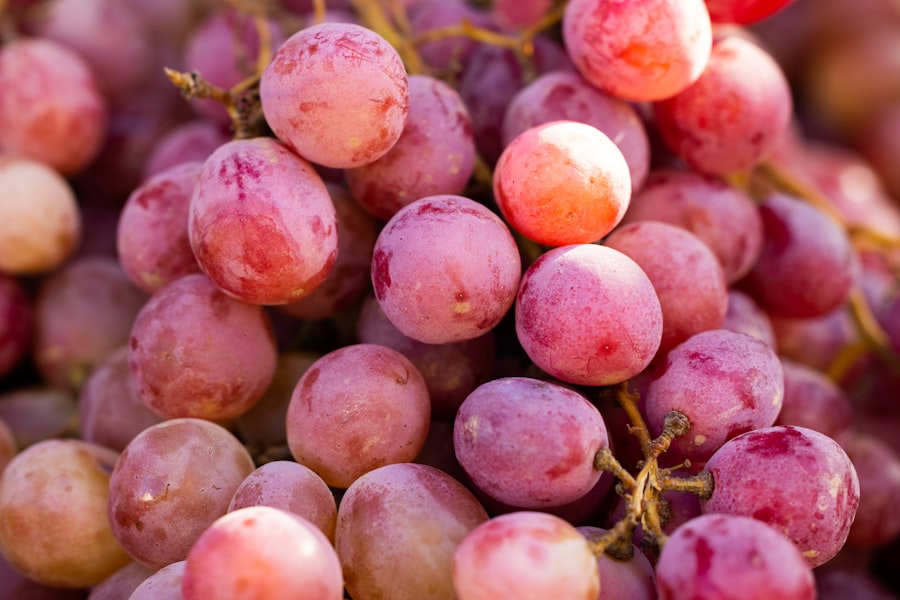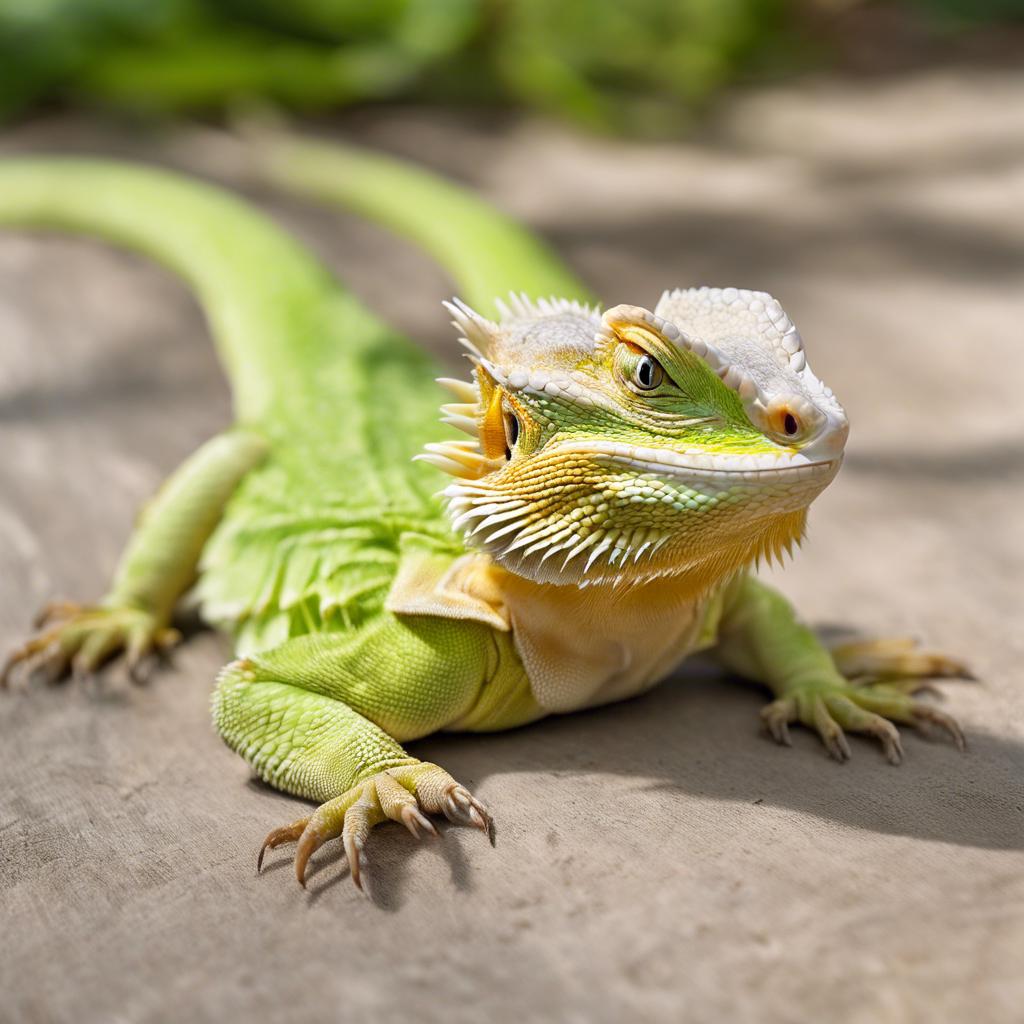Feeding a bearded dragon a balanced diet is crucial for their overall health and well-being. These reptiles have specific nutritional needs that must be met in order for them to thrive. One food that is often debated when it comes to feeding bearded dragons is honeydew. In this article, we will explore whether or not bearded dragons can eat honeydew, the potential benefits and risks of feeding it to them, and how to properly prepare it as part of their diet.
Key Takeaways
- Bearded dragons are popular pets that require a balanced diet to stay healthy.
- Honeydew is a nutritious fruit that can be fed to bearded dragons in moderation.
- Honeydew is high in water content and contains vitamins and minerals that are beneficial for bearded dragons.
- Feeding too much honeydew can lead to digestive issues and should be balanced with other foods.
- It is important to prepare honeydew properly and offer a variety of foods to ensure a balanced diet for bearded dragons.
Understanding Bearded Dragons
Bearded dragons are native to the arid regions of Australia and are known for their unique appearance, with spiky scales on their throat that resemble a beard. In the wild, they primarily feed on insects, vegetation, and occasionally small mammals. They are diurnal creatures, meaning they are most active during the day.
When it comes to their dietary needs, bearded dragons require a balanced mix of protein, calcium, vitamins, and minerals. Protein is essential for growth and muscle development, while calcium is necessary for bone health. Vitamins such as vitamin A and vitamin D3 are also important for their overall health.
Nutritional Needs of Bearded Dragons
Bearded dragons have specific nutritional needs that must be met in order for them to thrive. Protein is an essential component of their diet as it helps with growth and muscle development. In the wild, bearded dragons primarily feed on insects such as crickets and mealworms, which provide them with the necessary protein.
Calcium is another crucial nutrient for bearded dragons. It is necessary for bone health and proper functioning of their muscles and nerves. Bearded dragons require a good balance of calcium and phosphorus in their diet, as an imbalance can lead to metabolic bone disease.
Vitamins are also important for bearded dragons' overall health. Vitamin A is necessary for proper vision and immune function, while vitamin D3 helps with calcium absorption. Bearded dragons can obtain these vitamins through their diet, but supplementation may be necessary to ensure they are getting enough.
Honeydew: Nutritional Composition
Honeydew is a type of melon that is known for its sweet and juicy flesh. It is high in water content, which makes it a hydrating food for bearded dragons. Honeydew also contains a moderate amount of sugar, which can provide a quick source of energy.
In terms of vitamins, honeydew is a good source of vitamin C, which is important for immune function and collagen production. It also contains small amounts of vitamins A and K. Additionally, honeydew is rich in minerals such as potassium and magnesium.
Can Bearded Dragons Eat Honeydew?
The answer to whether or not bearded dragons can eat honeydew is yes, but in moderation. While honeydew can provide some nutritional benefits to bearded dragons, it should not make up a large portion of their diet. It should be offered as an occasional treat rather than a staple food.
Benefits of Feeding Honeydew to Bearded Dragons

Feeding honeydew to bearded dragons can have several potential benefits. Firstly, honeydew has a high water content, which can help keep them hydrated. This is especially important during hot weather or if your bearded dragon is not drinking enough water.
Honeydew also contains vitamins such as vitamin C, which can support their immune system and overall health. The variety in their diet can also help prevent boredom and encourage them to eat a wider range of foods.
Risks of Feeding Honeydew to Bearded Dragons
While honeydew can provide some benefits, there are also potential risks associated with feeding it to bearded dragons. One concern is the high sugar content of honeydew. Bearded dragons have a low tolerance for sugar, and consuming too much can lead to digestive issues such as diarrhea.
Another risk is the potential for an imbalance in their diet. Honeydew should not replace other essential foods in their diet, such as insects and leafy greens. It should be offered as a treat in small quantities to avoid any nutritional imbalances.
Preparing Honeydew for Bearded Dragons
When feeding honeydew to bearded dragons, it is important to properly prepare it. Start by washing the honeydew thoroughly to remove any dirt or pesticides. Cut the honeydew into small, bite-sized pieces that are easy for your bearded dragon to eat.
It is also important to remove the seeds and rind of the honeydew before offering it to your bearded dragon. The seeds can be a choking hazard, and the rind is difficult for them to digest.
Other Foods to Feed Bearded Dragons
While honeydew can be a healthy addition to a bearded dragon's diet when fed in moderation, it should not replace other essential foods. Bearded dragons require a balanced mix of protein, calcium, vitamins, and minerals.
In addition to insects such as crickets and mealworms, bearded dragons can also be fed a variety of leafy greens such as collard greens, kale, and dandelion greens. These provide essential vitamins and minerals.
Other vegetables such as bell peppers, squash, and carrots can also be included in their diet. It is important to offer a variety of foods to ensure they are getting all the nutrients they need.
Balanced Diet for Bearded Dragons
In conclusion, feeding a balanced diet is crucial for the health and well-being of bearded dragons. While honeydew can provide some nutritional benefits, it should not make up a large portion of their diet. It should be offered as an occasional treat in small quantities.
Bearded dragons require a mix of protein, calcium, vitamins, and minerals to thrive. In addition to honeydew, their diet should include a variety of insects, leafy greens, and other vegetables. By providing a balanced diet, you can ensure that your bearded dragon is getting all the nutrients they need to live a healthy and happy life.
If you're wondering whether bearded dragons can eat honeydew, you might also be interested in learning about what other fruits are safe for them to consume. Check out this informative article on Reptile Wizard's website: “Can Bearded Dragons Eat Black Olives?” It provides valuable insights into the dietary preferences and restrictions of these fascinating reptiles.
FAQs
What is a bearded dragon?
A bearded dragon is a type of lizard that is commonly kept as a pet. They are native to Australia and are known for their distinctive spiny “beard” under their chin.
What is honeydew?
Honeydew is a type of melon that is typically round or oval in shape with a smooth, greenish-yellow skin. It has a sweet, juicy flesh that is often eaten as a dessert or used in fruit salads.
Can bearded dragons eat honeydew?
Yes, bearded dragons can eat honeydew in moderation. It is a good source of hydration and contains vitamins and minerals that are beneficial for their health.
How should honeydew be prepared for bearded dragons?
Honeydew should be cut into small, bite-sized pieces and offered to bearded dragons as a treat. It should not make up a large portion of their diet and should be given in moderation.
What other foods can bearded dragons eat?
Bearded dragons are omnivores and can eat a variety of foods, including insects, vegetables, and fruits. Some good options include crickets, mealworms, kale, collard greens, and strawberries. It is important to provide a balanced diet and avoid feeding them foods that are high in fat or sugar.

